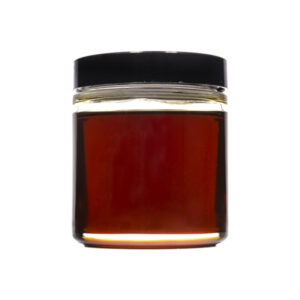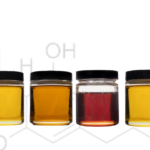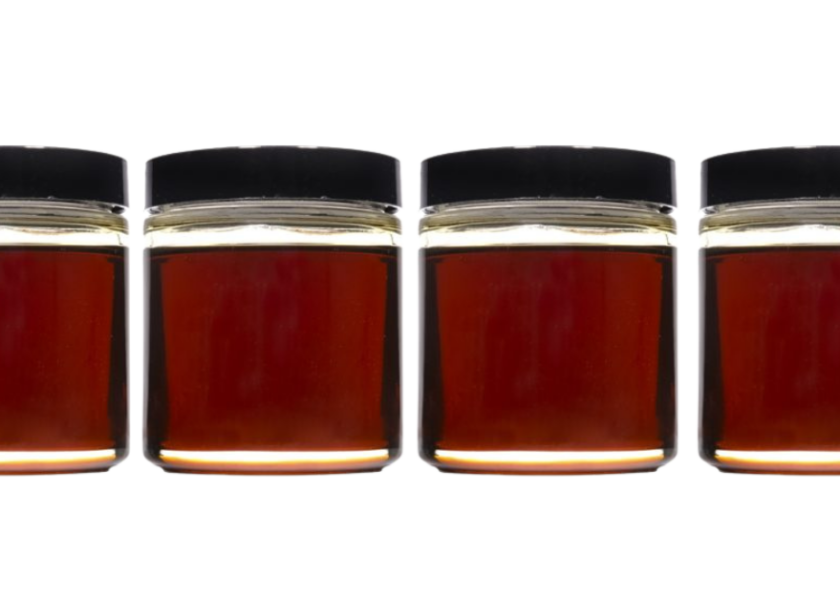At MC Nutraceuticals (MCN), we excel in the customization of hemp-derived cannabinoid blends for our global clientele. Ensuring a comprehensive understanding of every cannabinoid is fundamental to our service, and we’re committed to providing assistance every step of the way! THCp stands as one of our most potent cannabinoids, so we wanted to take some time to explain why it’s so special.
What is THCp?
THCp, short for Δ^9-tetrahydrocannabinol, is a naturally occurring phytocannabinoid discovered in cannabis that has garnered significant attention since its identification by Italian researchers in 2019. As an analog of THC, the renowned psychoactive compound in cannabis, THCp shares structural similarities with its counterpart. However, what sets THCp apart is its remarkable potency, believed to be 30 times stronger than THC in activating cannabinoid receptors within the body.
Here at MC Nutraceuticals, this emerging cannabinoid has become a cornerstone feature for brand owners seeking to make a significant impact with their products One notable advantage we’ve observed is that THCp, being a newcomer in the market, has provided significant opportunities for our customers to enter the market at an early stage when it’s still considered “fresh.”
History of THCp
The discovery of THCp remains in its early stages, with its history tracing back to a team of Italian researchers in 2019. These scientists embarked on exploring the chemical composition of different cannabis strains, aiming to uncover potential therapeutic cannabinoids. Employing analytical methods such as liquid chromatography and mass spectrometry, the researchers meticulously scrutinized the chemical profiles of various cannabis varieties. Amidst their investigation, they stumbled upon a new cannabinoid bearing resemblance to THC but distinguished by a longer side chain. This newfound compound was dubbed THCp, marking a significant milestone in cannabinoid research.
How is THCp made?
THCp products originate from the industrial hemp plant. The synthesis of THCp begins with cannabigerolic acid (CBGa), an acidic cannabinoid naturally found in the cannabis plant. This precursor undergoes decarboxylation, a process that involves the removal of a carboxyl group through heat or other means, resulting in the formation of THCp.
In practical terms, this involves starting with CBD, a cannabinoid abundant in the plant, and modifying its molecular structure to yield THCp. Initially, CBD distillate is produced, which is a purified extract of CBD. This is achieved by subjecting full-spectrum hemp extract to distilled steam at various temperatures and pressure levels, selectively evaporating non-CBD compounds. Eventually, only pure cannabidiol extract remains. Subsequently, chemists manipulate the molecular arrangement of CBD to match that of THCp.
Is THCp Legal?
THCp falls under the regulatory purview outlined in the 2018 Farm Bill, which sanctioned hemp cultivation and removed hemp and hemp seeds from the DEA’s Controlled Substances list. The bill specifies that hemp products must adhere to a THC content limit of 0.3 percent.
Despite the Farm Bill establishing a legal framework for hemp-derived products like THCp, its legality is subject to variation across states. It is imperative for both consumers and businesses to remain vigilant regarding the evolving regulations concerning THCp within their respective states, as these regulations may undergo modifications over time.
Stay informed about potential changes by subscribing to our newsletter for the latest updates and breaking news.
Does THCp show up on a drug test?
There is not enough research on THCp to give a certain answer. Given its structural similarity to THC and its potential psychoactive effects, it’s plausible that it could be detected by certain drug tests that screen for THC metabolites.
Most drug tests for cannabis focus on detecting THC or its metabolites, such as THC-COOH, in bodily fluids like urine, blood, or saliva. Since THCp shares similarities with THC, it’s reasonable to assume that it might produce metabolites that could be detected by these tests.
Given these uncertainties, if you are subject to drug testing and have concerns about THCp, it’s advisable to consult with a healthcare professional or toxicologist for the most accurate and up-to-date information based on current research and testing methodologies.
THC vs THCp

The extended chain present in THCp results in significantly heightened cannabimimetic properties compared to THC, thereby amplifying its potency and effects. From a molecular standpoint, THCp bears a remarkable resemblance to delta-9 THC, renowned for its widespread therapeutic benefits and psychoactive attributes.
THCp operates within the endocannabinoid system comparably to THC, but with a notably stronger affinity for cannabinoid receptors. Research indicates that THCp binds to CB1 receptors up to 33 times more effectively than conventional THC, suggesting a potential potency increase of up to 33 times. What sets THCp apart is its distinct longer side chains, with a string of seven carbon atoms compared to the five-carbon chain in traditional THC.
This structural variance allows THCp to form more secure attachments to receptors throughout the body, contributing to its unique properties and effects. There are reported similarities in effects between the two, such as pain management, sleep aid properties and inflammation reduction.
Effects and Duration of THCp
THCP’s largest advantage lies in its remarkable stability as a compound, coupled with its unparalleled potency. Furthermore, it is said by consumer studies to provide a range of therapeutic benefits, including but not limited to chronic pain management, relief from neuropathic pain, alleviation of symptoms related to anxiety, depression, and insomnia, reduction of inflammation, improvement in sleep quality, and mitigation of nausea and vomiting sensations. THCp is believed to possess potent pain-relieving, anti-inflammatory, and anxiolytic attributes.
The duration of these effects may differ depending on various factors such as dosage, individual tolerance levels, and the mode of consumption.
Forms of THCp from MC Nutraceuticals
D9 THCp distillate
D9 THCp distillate, an amplified iteration of Delta 9 THC, delivers an elevated and exceptional experience. Setting itself apart from traditional THC compounds, it provides a potent option for individuals seeking a unique and intensified effect. Its versatility extends to various applications, including vapes, gummies, flowers, beverages, wax, and tinctures.
If you don’t find what you’re searching for, feel free to reach out to us via phone 1.800.685.8084 to explore how we might assist you further.
THCp retail products
Whether you’re seeking inspiration for incorporating THCp into your product line or eager to try THCp-infused products, here are our top picks of gummies and vapes.
How Can THCp Help Grow Your Cannabis Brand?
THCp presents a unique opportunity as a novel product in the market. With increasing research and studies, there is growing potential to leverage your brand to pioneer and shape this emerging market. At MC Nutraceuticals, our THCp products provide consumers with the chance to explore the potential and distinctive properties of this cannabinoid through a range of innovative blends. We are dedicated to collaborating with you to develop a brand line that maximizes the benefits of THCp and captures the interest of discerning consumers.
More Questions About THCp?
Don’t hesitate to reach out with any questions or concerns about THCp that we didn’t cover in this article. Our hemp experts are ready to help. Call 1.800.685.8084 or email us at sales@mcnutraceuticals.com.




